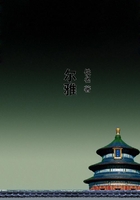`You do not believe in priests, Don Martin? Neither do I. What was the use of wasting time? But she -- she believes in them. The thing sticks in my throat. She may be dead already, and here we are floating helpless with no wind at all. Curse on all superstition. She died thinking I deprived her of Paradise, I suppose. It shall be the most desperate affair of my life.'
Decoud remained lost in reflection. He tried to analyse the sensations awakened by what he had been told. The voice of the Capataz was heard again:
`Now, Don Martin, let us take up the sweeps and try to find the Isabels.
It is either that or sinking the lighter if the day overtakes us. We must not forget that the steamer from Esmeralda with the soldiers may be coming along. We will pull straight on now. I have discovered a bit of a candle here, and we must take the risk of a small light to make a course by the boat compass. There is not enough to blow it out -- may the curse of Heaven fall upon this blind gulf!'
A small flame appeared burning quite straight. It showed fragmentarily the stout ribs and planking in the hollow, empty part of the lighter. Decoud could see Nostromo standing up to pull. He saw him as high as the red sash on his waist, with a gleam of a white-handled revolver and the wooden haft of a long knife protruding on his left side. Decoud nerved himself for the effort of rowing. Certainly there was not enough wind to blow the candle out, but its flame swayed a little to the slow movement of the heavy boat.
It was so big that with their utmost efforts they could not move it quicker than about a mile an hour. This was sufficient, however, to sweep them amongst the Isabels long before daylight came. There was a good six hours of darkness before them, and the distance from the harbour to the Great Isabel did not exceed two miles. Decoud put this heavy toil to the account of the Capataz's impatience. Sometimes they paused, and then strained their ears to hear the boat from Esmeralda. In this perfect quietness a steamer moving would have been heard from far off. As to seeing anything it was out of the question. They could not see each other. Even the lighter's sail, which remained set, was invisible. Very often they rested.
` Caramba !' said Nostromo, suddenly, during one of those intervals when they lolled idly against the heavy handles of the sweeps. `What is it? Are you distressed, Don Martin?'
Decoud assured him that he was not distressed in the least. Nostromo for a time kept perfectly still, and then in a whisper invited Martin to come aft.
With lips touching Decoud's ear he declared his belief that there was somebody else besides themselves upon the lighter. Twice now he had heard the sound of stifled sobbing.
` Senor ,' he whispered with awed wonder, `I am certain that there is somebody weeping in this lighter.'
Decoud had heard nothing. He expressed his incredulity. However, it was easy to ascertain the truth of the matter.
`It is most amazing,' muttered Nostromo. `Could anybody have concealed himself on board while the lighter was lying alongside the wharf?'
`And you say it was like sobbing?' asked Decoud, lowering his voice, too. `If he is weeping, whoever he is he cannot be very dangerous.'
Clambering over the precious pile in the middle, they crouched low on the foreside of the mast and groped under the half-deck. Right forward, in the narrowest part, their hands came upon the limbs of a man, who remained as silent as death. Too startled themselves to make a sound, they dragged him aft by one arm and the collar of his coat. He was limp -- lifeless.
The light of the bit of candle fell upon a round, hook-nosed face with black moustaches and little side-whiskers. He was extremely dirty. A greasy growth of beard was sprouting on the shaven parts of the cheeks. The thick lips were slightly parted, but the eyes remained closed. Decoud, to his immense astonishment, recognized Senor Hirsch, the hide merchant from Esmeralda.
Nostromo, too, had recognized him. And they gazed at each other across the body, lying with its naked feet higher than its head, in an absurd pretence of sleep, faintness, or death.















